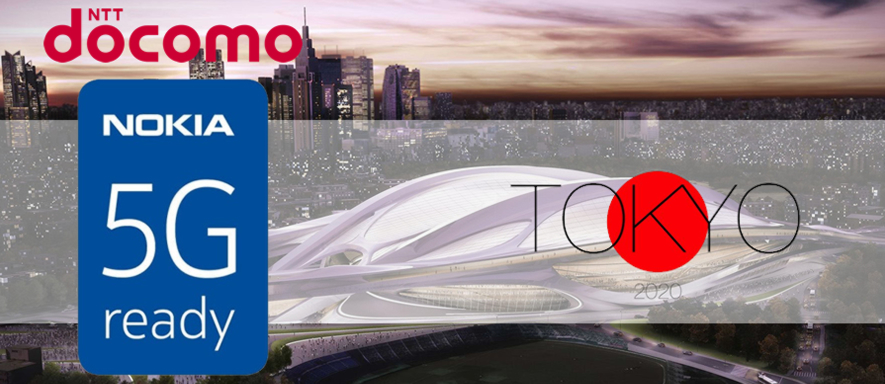Finnish telecommunications colossus Nokia has announced that it has sealed a major deal to supply 5G base stations to Japan’s largest mobile operator NTT Docomo. The agreement represents the vendor’s first large-scale 5G contract since the first formal 5G New Radio (NR) standard was established and subsequently approved in last month.
In a statement issued to the press Nokia confirmed that it will assist, facilitate and support NTT’s 5G operation by upgrading existing baseband units by integrating its 5G NR-based Air-Scale hardware into its network.
Japan’s target for the commercial deployment of 5G is set for 2020 in order to coincide with the launch of the Olympic Games in Tokyo. However, the financial terms of the contract weren’t disclosed by either organization and both declined to comment when pressed on the details.
In May last year, NTT announced its plans to collaborate with Nokia and Intel for a number of 5G standardization trials using the 4.5GHz band. The trials were conducted in the metropolitan area of Tokyo before the end of the year.
President of Mobile Networks at Nokia, Marc Rouanne, expressed his delight at the contractual agreement between the two entities and claimed that they enjoyed a great working relationship with NTT Docomo and both shared similar beliefs in relation to the way forward for 5G commercialization.
He said, “Together we have worked hard in recent months to commence preparations for NTT Docomo’s eventual launch of its operational 5G service by 2020, which we have now set in motion by this very exciting announcement.”
The 3GPP’s first approved iteration of highly anticipated 5G NR specifications for non-standalone (NSA) operation features in Release 15 and covers both fixed and mobile applications. The NSA specification also laid out key 5G bands including 617MHz to 698MHz (Band 71), AWS (Band 66), 2.5GHz, 3.3GHz to 4.3GHz, 4.4GHz to 4.99GHz, 24.25GHz to 29.5GHz and 37GHz to 40GHz.
Industry leaders hailed the release of the standard as a milestone which sets the stage for the global mobile industry to begin full-scale deployment of the next-generation technology.










